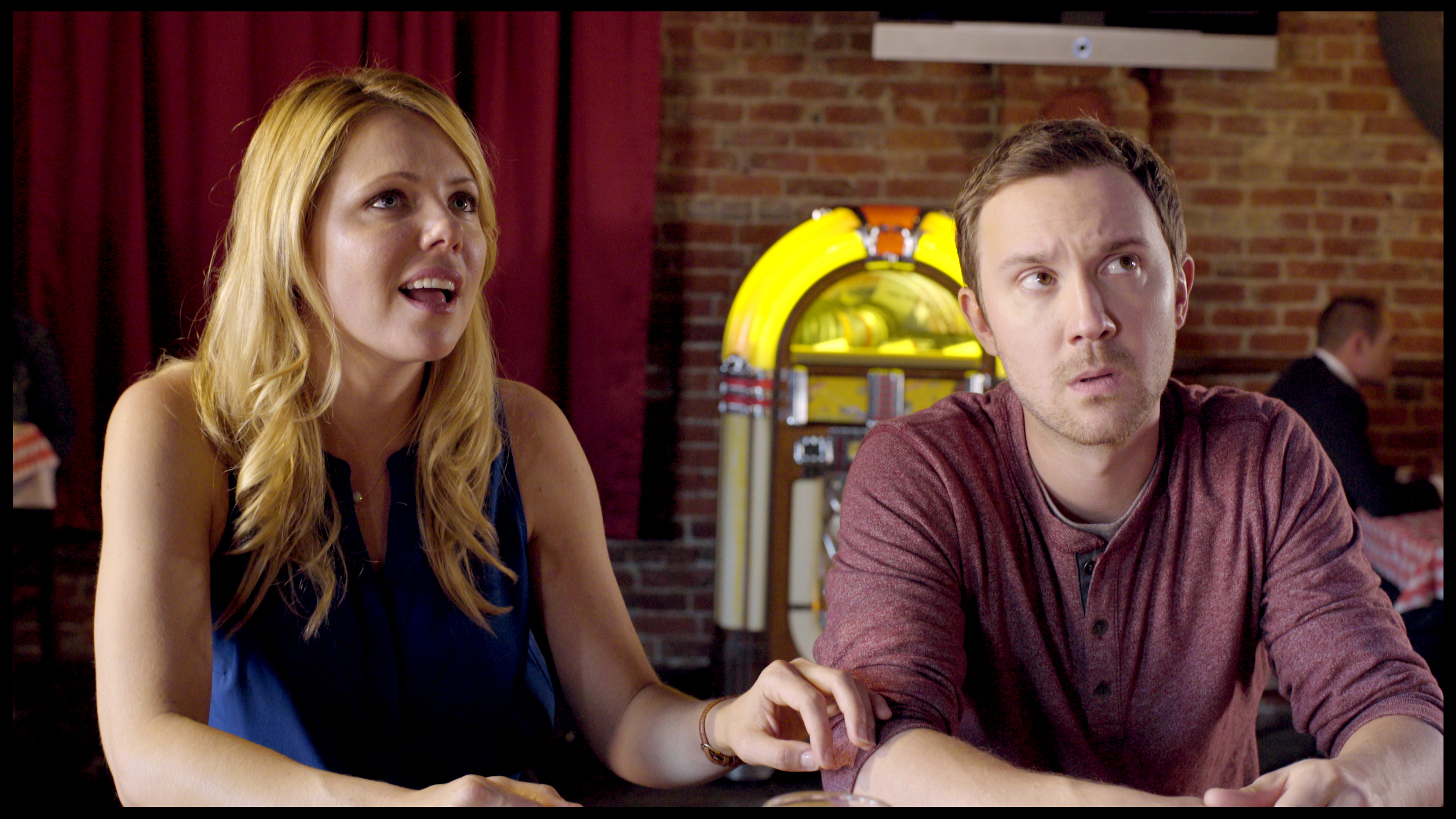“Stop thinking, and end your problems.
What difference between yes and no?
What difference between success and failure?
Must you value what others value,
avoid what others avoid?
How ridiculous!
“Other people are excited,
as though they were at a parade.
I alone don’t care,
I alone am expressionless,
like an infant before it can smile.
“Other people have what they need;
I alone possess nothing.
I alone drift about,
like someone without a home.
I am like an idiot, my mind is so empty.”
– from the Tao Te Ching
One of the recurring themes of the ancient text the Tao Te Ching is the abandonment of one’s mind, of being able to step away from your own understanding and therefore understand all things. Another way of saying this is to imagine a glass. If the glass is already full, it can contain nothing else. But an empty glass can contain anything.
It is the same to imagine nothing. Just as all things arise from nothing, so does sound arise from silence. Just as the nothingness of space contains everything. It is the same with our minds. If it is already full of ideas and thoughts and identities, it can contain nothing else. It is closed to everything.
So, to read a passage that ends with “I am like an idiot, my mind is so empty,” may take on a new meaning to someone who understands this concept. In this way, I’m here to tell you: Although you may be intellectually smarter than the character Forrest Gump, you can’t rightly call yourself smarter, in many ways, than Forrest Gump. He’s a Taoist master. As the Tao Te Ching says: “True wisdom seems foolish.”
One of the most popular criticisms against the film Forrest Gump is that it has nothing to say. I’ve read critiques pointing out the many ways in which this film lacks an identity in that way; many of these critiques stem from what almost seems to be a trend of hating or disliking Forrest Gump, and though some have their decent points, others seem to be searching for critiques simply for the sake of doing so. “You know that popular classic film everybody likes? I don’t like it.”
Another of the more popular criticisms is that the film is somehow propaganda, the evidence for this being the life of Forrest and Jenny and how they contrast against each other: Jenny fights the system, embraces counterculture, etc, and ends up miserable and suicidal; Forrest drifts along, does what he’s told, has no apparent agenda, and has an amazing successful life. In this vein, I’ve heard the film criticized for being conformist propaganda.
Needless to say, I find both of these criticisms–which are some of the most prominent I’ve heard–simply wrong.
“When you are content to be simply yourself
and don’t compare or compete,
everybody will respect you.” – Tao Te Ching, Verse 8
One of the things I immediately noticed and appreciated about the character of Forrest Gump is his pure simplicity, and how he is totally and unapologetically himself. Forrest spends no time defending himself against others. He doesn’t second-guess himself, doesn’t apologize or even feel the need to apologize for the things he wants or the way he is. And he is in competition with no one. Look at how he befriends Jenny on the bus. He doesn’t try to understand her, doesn’t impose some kind of worldview or values on how he sees her. He just accepts her for who she is and how she is. This is how Forrest treats everyone he will ever meet across his life. Even when it comes to people like Jenny, who spend most of their lives taking him for granted, Forrest sees the best in everyone by not expecting anything at all. His mind isn’t closed in judgments or thoughts. He doesn’t hold grudges or dwell on things. He lets actions speak for themselves, whether it’s his actions or the actions of others.
“Because he believes in himself,
he doesn’t try to convince others.
Because he is content with himself,
he doesn’t need others’ approval.
Because he accepts himself,
the whole world accepts him.” – Tao Te Ching, Verse 30
In this way, I truly appreciate how Forrest Gump isn’t about Forrest overcoming his mental disability, nor is it about him finding validation in a world that sees him differently. It’s as simple as him accepting himself entirely, without even trying, and the world around him, everyone he meets, falls into place and accepts him too.
And look at how even his tumultuous relationships work out.
Lieutenant Dan spent a lot of time looking down on Forrest, thinking him less because he isn’t “smart,” not to mention Lieutenant Dan’s own cynicism and bitterness in life born of a death wish unfulfilled. He may not treat Forrest very well at first, he may insult him and look down on him, but eventually he comes to not only appreciate Forrest, but he comes to see him as a friend. And at the end of the film, you could say Lieutenant Dan has become the person Forrest always knew he could be. But Forrest wasn’t trying to change him, nor was he judging him.
And with Jenny, who many viewers understandably hate. She takes advantage of Forrest, she looks down on him, she looks for meaning and purpose and answers in all the wrong places. She may very well be the one thing in Forrest’s life that is his foil, his biggest cause of pain and suffering. And even if it could argued–understandably–that she doesn’t deserve Forrest, he still embraces her when she returns, and doesn’t even need the apology that she gives him. He always saw in her what she eventually became. His simplicity, his approach to life was, perhaps, the answer all along.
“The Master has no mind of his own.
He works with the mind of the people.
He is good to people who are good.
He is also good to people who aren’t good.
This is true goodness.
He trusts people who are trustworthy.
He also trusts people who aren’t trustworthy.
This is true trust.
The Master’s mind is like space.
People don’t understand him.
They look to him and wait.
He treats them like his own children.” – Tao Te Ching, Verse 49
As easy it is to hate her as a character, when you look at where Jenny comes from, it’s easier to understand her. She had few friends and grew up too fast, having come from an abusive home devoid of love–she was always running away from her past.
Look at Forrest Gump. He comes from a humble home, and there is of course the matter of his mental disability, which hardly seems a disability at all when seen from the right perspective. Forrest does not dwell on the past, nor does he seem to do much thinking about the past at all. To paraphrase Winnie the Pooh, he always got where he was going simply by going away from where he’s been.
It is the same with the future. Forrest doesn’t fret or worry about the future. This seemingly gets him into a lot of trouble, but he greets everything as it comes, and when it comes time for something to end, he lets it go. He is present in every moment of his life, not dwelling on the future or worrying about the past. When Forrest feels like running, he runs. And on his run across the country and back–however many times he did that–he expresses the perfect simplicity of presence by saying that when he was hungry, he ate. When he was tired, he slept. He does this while running, but he also does this in his life.
Whether it was getting enlisted in Vietnam, giving a speech in front of thousands of people (regardless of the microphone being silenced), discovering Ping Pong, getting into the shrimp business, Forrest gives himself to every aspect of his life.
“The Master never reaches for the great;
thus he achieves greatness.
When he runs into a difficulty,
he stops and gives himself to it.
He doesn’t cling to his own comfort;
thus problems are no problem for him.” – Verse 63
“Therefore the Master
acts without doing anything
and teaches without saying anything.
Things arise and he lets them come;
things disappear and he lets them go.
He has but doesn’t possess,
acts but doesn’t expect.
When his work is done, he forgets it.
That is why it lasts forever.” – Verse 2
When Forrest finds himself thrust into a situation, he accepts it and goes forward with a kind of stillness inside, totally content in himself and in who he is. He has nothing to defend, no agenda to push, no feelings of inadequacy; to him, there is nothing lacking, even while others look at him and see a fool or an idiot.
Take, for example, the Vietnam rally in Washington that Forrest finds himself pushed into. He doesn’t seem the least bit concerned about the situation. And when he faces the crowd and begins to speak, the microphone plugs are pulled and there is only silence. No one hears what he has to say. I’ve heard this scene criticized as a prime example of the film having no agenda or identity, having nothing to say. My response to that criticism is this: Silence is its own wisdom. Sometimes what people need most is stillness and silence. It can be more powerful than any words. It is when we are still, when we stop clinging to ideas or notions or thoughts, that we may begin to understand what it means to empty oneself and find the peace of simply being.
“The Master allows things to happen.
He shapes events as they come.
He steps out of the way
and lets the Tao speak for itself.” – Verse 45
Although I’m sure it would be easy to continue and break down the entire film and the character of Forrest Gump, there are two final parts of the movie worth noting.
One is when Forrest witnesses what he describes as Lieutenant Dan finally making his peace with God. Lieutenant Dan could have lived his whole life as a victim of his circumstances and himself, always clinging to things, always resisting and fighting and longing for death. The epitome of this would be the hurricane he and Forrest are swept into on their shrimp boat, when Lieutenant Dan remains on the top sail, crying out to God to come and get him, to finish what he started, to end it. He faces death again and begs for it, but comes out alive. And after, in the stillness, he thanks Forrest and jumps into the water–not to drown, but simply to be. The film never goes into what he experienced then, not in detail, but to me it was like watching Lieutenant Dan finally get out of his own way. He faced everything he could and maybe saw that suffering has no end and it has no answer. And we can step away from it if we choose. How much we suffer is often our unconscious choice. Dan let go and was more free than he had ever been, and becomes a successful and happy man. His character arc may be my favorite of the film’s.
Lastly is the film’s biggest tear-jerker moment, when Forrest is standing over Jenny’s grave and talking to her. It is clear that for much of his life, Forrest never did much thinking about life. Why would he have to? He simply lived, and it was more than enough. But he says something interesting, taking into account things he has heard people say about the nature of the world.
” I don’t know if Momma was right or if, if it’s Lieutenant Dan. I don’t know if we each have a destiny, or if we’re all just floating around accidental-like on a breeze, but I, I think maybe it’s both. Maybe both is happening at the same time.”
In Taoism as with Buddhism or other similar “philosophies,” if you can call them that, there is much talk of something called The Middle Way. It is best represented with the image of Yin and Yang: Light and dark in a fluid dance, both existing within each other, both inseparable from the other. And through the center of them is the Middle Way, or the Tao (which translates to “The Way”). It is the way of being, of non-action and simplicity, being empty and therefore embracing all; understanding nothing and therefore understanding everything. That simple quote from Forrest Gump, when he says “I think maybe it’s both. Maybe both is happening at the same time,” illustrates it in a simple and beautiful way. It never really mattered to Forrest one way or the other, and it doesn’t have to be one thing or the other: maybe it’s both.
You may be smarter than Forrest Gump, but does that really make you smarter than him? The film may not conventionally have a lot to say, but there can be more wisdom in that than in any amount of words. And I hope reading this has helped with the understanding that no, this film isn’t propaganda for conformity. If anything it is the story of a simple person–simple in thought, simple in action, simple in all things–who embodies “the way” or “the Tao.” Jenny spends her whole life seeking something–purpose, happiness, fulfillment–in external pleasures, in ideas and ideologies and identities. Lieutenant Dan does the same in his own way.
And Forrest? Well. Forrest just is. If anything, he teaches us that the answers aren’t out there somewhere waiting for us, and not only are we asking the wrong questions, maybe we shouldn’t think that we have to ask questions at all. Maybe it really is so profoundly simple, it almost seems foolish or ridiculous.
“Some say that my teaching is nonsense.
Other call it lofty but impractical.
But to those who have looked inside themselves,
this nonsense makes perfect sense.
And to those who put it into practice,
this loftiness has roots that go deep.
“I have just three things to teach:
simplicity, patience, compassion.
These three are your greatest treasures.
Simple in actions and in thoughts,
you return to the source of being.
Patient with both friends and enemies,
you accord with the way things are.
Compassionate toward yourself,
you reconcile all beings in the world.” – Verse 76


